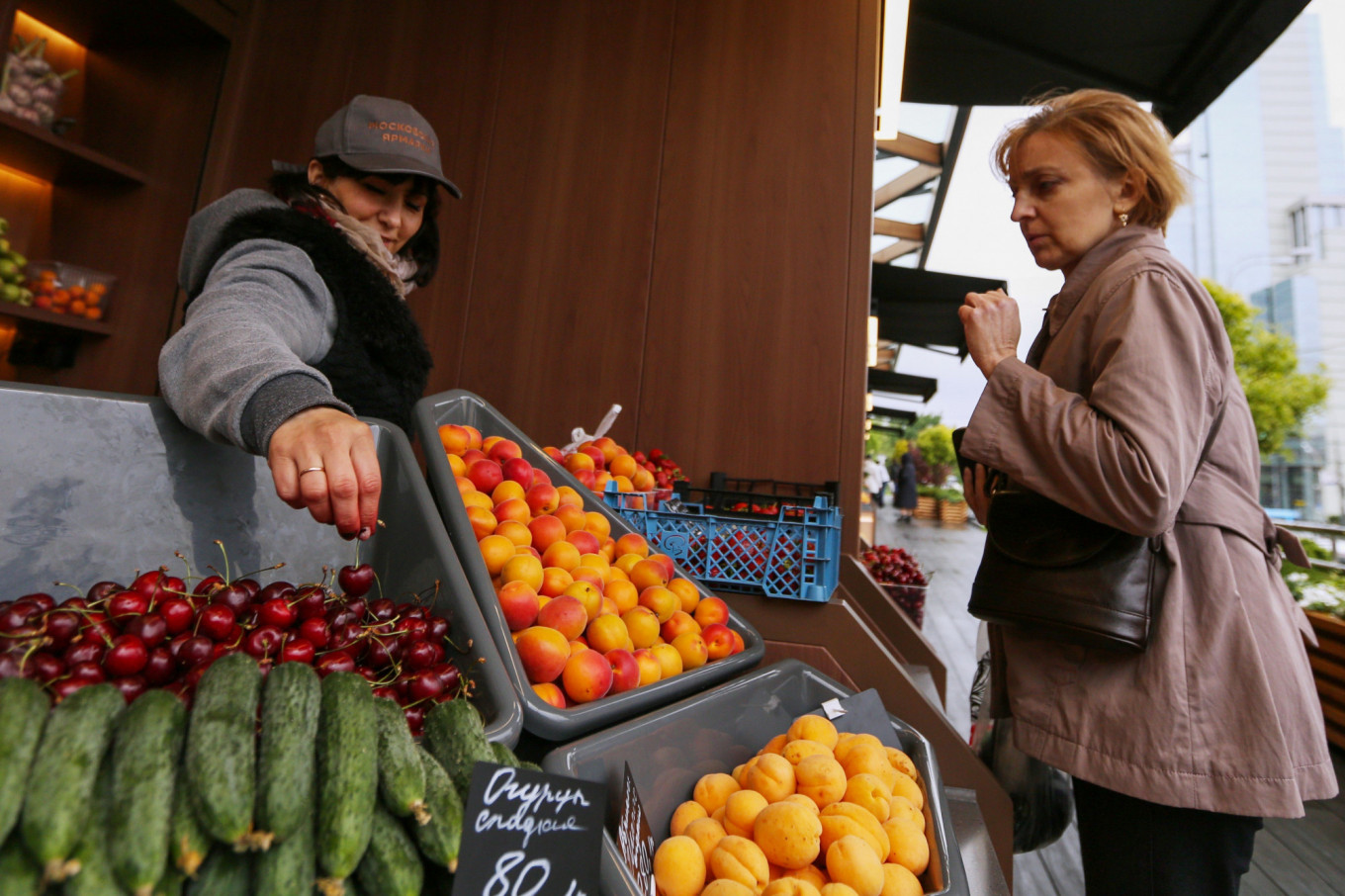
Russia’s counter-sanctions against western food imports cost its citizens $70 per person every year through higher prices.
New research into the impact of Russia’s counter-sanctions and its import substitution policies found that the costs to Russian shoppers through higher prices for food, including fish, meat, cheese and vegetables far outweigh any of the program’s benefits.
Economists analyzed consumption patterns and food prices to conclude that Russian consumers lose 445 billion rubles a year in 2013 prices on goods banned under Russian counter-sanctions.
Adjusting the figures to today’s prices, the loss works out at 632 billion rubles a year ($9.9 billion) — or just under 4,400 rubles ($69) per person.
The research was led by teams from the Centre for Economic and Financial Research (CEFIR) and the Russian Presidential Academy of National Economy and Public Administration (RANPEA), and reported in Russian daily Kommersant.
President Vladimir Putin introduced counter-sanctions in response to EU and U.S. sanctions against Russia following the annexation of Crimea. Since 2014, the Russian government has pushed import substitution policies to build up Russia’s domestic agricultural production and build the country’s self-sufficiency in meat, milk, fish, cheese, fruit and vegetables.
However, the report found the only sectors to have been successful in replacing European imports and reducing prices are the poultry, pork and tomato industries. The net benefits of import substitution for Russian consumers were calculated at around 75 billion rubles in 2013 prices — overwhelmed by the extra 530 billion rubles that Russian consumers are spending on other food covered by the embargo every year, and resulting in the 4,400 ruble per person loss.
“Five years after the introduction of counter-sanctions, Russian consumers continue to pay for them from their own pockets. Although a few industries have seen a positive impact of the import substitution policy, most of them are not effective enough to change general price dynamics,” the study said.
